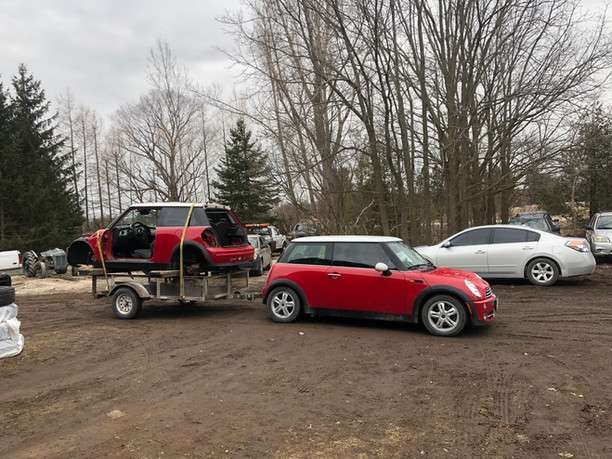Preventative maintenance is often viewed as an inconvenience, but it’s one of the most crucial steps you can take to ensure your vehicle’s longevity and performance. Think of your car as a complex system of interconnected parts that rely on regular care and attention to operate smoothly. By addressing small issues early on, you can avoid expensive repairs down the road and enjoy a safer, more reliable ride.
What Preventative Maintenance Involves
Regular preventative maintenance for your car typically includes services like oil changes, brake inspections, tire rotations, fluid checks, and air filter replacements. Each of these components plays an essential role in maintaining your vehicle’s overall health. Oil lubricates the engine, brake pads ensure safe stopping, and air filters help your engine run efficiently. Tires, too, are vital; improperly balanced or worn-out tires can affect both safety and fuel efficiency.
At Auto Solve, we recommend routine services to keep your car running at its best. These services are designed to spot minor issues before they escalate into major problems. For example, getting an oil change on time prevents engine buildup and ensures that your car runs smoothly, while tire rotations help maintain even wear, improving handling and fuel efficiency.
The Cost Savings of Preventative Maintenance
One of the most immediate benefits of regular maintenance is the significant cost savings it provides in the long term. Small issues left unchecked often lead to more serious—and expensive—problems. For example, skipping an oil change may cause engine parts to wear down prematurely, resulting in costly repairs or even engine failure.
Additionally, by maintaining your car’s parts—such as replacing brake pads, checking tire pressure, and inspecting fluid levels—you prevent the need for emergency repairs, which can be both time-consuming and costly. Regular maintenance also ensures that your car is operating efficiently, meaning you’ll save money on fuel. Cars that are well-maintained tend to consume fuel more efficiently, as a healthy engine burns fuel more effectively than one that’s neglected.
Enhanced Safety on the Road
Preventative maintenance also plays a crucial role in keeping you and your passengers safe. The braking system, tire health, and fluid levels are essential for a safe driving experience. Worn-out brake pads or tires with insufficient tread can lead to dangerous situations on the road, particularly in adverse weather conditions.
Regular brake inspections help prevent issues like brake failure, which can be life-threatening in emergency situations. Checking tire tread depth ensures that you have adequate traction, reducing the risk of accidents in wet or icy conditions. Routine fluid checks, such as for brake fluid, power steering fluid, and coolant, ensure that the car’s critical systems are operating at optimal levels, providing you with reliable performance.
Environmental Impact
Regular maintenance doesn’t only benefit your pocketbook and your safety; it also helps the environment. Keeping your car in optimal condition reduces its carbon footprint. A well-maintained engine burns fuel more efficiently, which results in fewer emissions. When the engine is tuned up, it operates at peak performance, ensuring that harmful gases like carbon dioxide are minimized.
Moreover, regular maintenance, such as replacing clogged air filters, not only helps your car run efficiently but also reduces harmful exhaust emissions. This is particularly important in cities where air quality can be a concern.
Improved Vehicle Longevity
Routine maintenance significantly extends the lifespan of your vehicle. By following a regular maintenance schedule, you can avoid the kinds of severe mechanical failures that could shorten the life of your car. Parts like belts, hoses, and tires naturally wear down over time, but replacing them when necessary helps avoid more significant, more expensive breakdowns in the future.
For instance, replacing worn-out timing belts or hoses before they snap can prevent damage to the engine, a much costlier repair. Additionally, regular maintenance ensures that the car’s key components, like the transmission, suspension, and electrical systems, are working efficiently and don’t degrade prematurely. All of these elements contribute to making your vehicle last longer and perform at its best.
Maintaining Resale Value
Your car’s resale value can also be impacted by how well it’s maintained. Cars that are consistently serviced tend to have higher resale values because buyers are more likely to trust a vehicle that has been cared for and kept in good condition. Regularly documenting your vehicle’s maintenance history not only helps with resale but also makes it easier to sell your car when the time comes.
A car that’s been well-maintained is less likely to have hidden problems, which makes it more attractive to prospective buyers. The more reliable your car, the easier it is to sell at a competitive price.
Peace of Mind on the Road
Finally, preventative maintenance gives you peace of mind. No one wants to be stuck on the side of the road with a broken-down car. With regular maintenance, you can feel confident knowing that your vehicle is less likely to fail unexpectedly. Routine check-ups ensure that your car is always ready to go, whether you’re heading to work, taking a road trip, or just running errands.
In conclusion, preventative maintenance is an investment that pays off in numerous ways. It saves you money, keeps you safe, helps the environment, and ensures that your vehicle lasts longer. At Auto Solve, we offer comprehensive maintenance plans tailored to your vehicle’s specific needs, keeping it in top condition for years to come. By trusting Auto Solve with your vehicle’s care, you can enjoy a smooth, safe, and worry-free driving experience.







